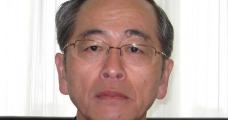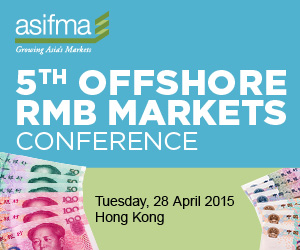Deutsche May Face $105 million In Fine Over Option Trading
Korean financial regulators have identified the source of suspicious trading of KOSPI shares on Nov. 11, dubbed “option terrorism” in the financial industry, as accounts belonging to Deutsche Bank registered in Hong Kong and London.
The global bank may face fines of up to 120 billion won ($105 million) and those involved in the trading could be subject to prison terms. The suspension of operations or the cancelation of the bank’s license in Korea is also an option, a source said on condition of anonymity.
“The accounts belong to Deutsche Bank in Hong Kong and London, not as previously thought, one in Germany,” a high-ranking official at a regulatory authority told The Korea Times Wednesday.
The next step in the investigation is to find out whether there was any attempt at insider trading by the bank’s employees.
Five investigators have been dispatched from the Financial Supervisory Service (FSS) to Hong Kong, said Lee Jeong-eui, director of Capital Market Investigation Bureau 1 at the FSS
“They left Korea and are now about to arrive in Hong Kong,” Lee said. But he refused to reveal whether the FSS has secured support from Hong Kong’s financial regulator, which would be essential in this case.
Deutsche Bank spokeswoman Amy Chang declined to comment, while the Hong Kong Securities and Futures Commission did not respond.
The Korea Exchange, the operator of the stock market, suspects that Deutsche Bank might have made a massive amount in illegal profit on Nov. 11, by trading high-leverage derivative products for itself before executing orders received from customers. If true, this is a breach of the regulations on insider trading.
The FSS regulation stipulates that insider trading is subject to a fine three times the amount of the illegal gain. Reports from Korean newspapers have estimated that Deutsche Bank made around 30 to 40 billion won from the dubious trading, which means a fine of 120 billion won.
The crime of insider trading is also subject to at least five years in prison for individuals responsible for the action, if the size of the fraud exceeds 5 billion won.
“We suspect that traders at Deutsche Bank must have been tempted to take advantage of this kind of situation. If they weren’t, then they can’t call themselves traders,” an official at the Korea Exchange said on condition of anonymity.
On the day of the option terrorism, sell orders worth 1.6 trillion won were executed in the final 10 minutes of trading on the KOSPI. Since real-time trading is suspended in this period and deals are processed all at once, the rest of the market did not know what was happening and couldn’t react.
As a result, the KOSPI index plunged 53.12 points. Many local stock trading firms claim the incident inflicted damage to them, as they were betting that this kind of exceptional event would not happen that day. Wise Asset, an investment management firm, said it lost 90 billion won from its long positions, and much of the damage was transferred to Hana Daetoo Securities, a major asset management firm.
The incident is dubbed as “11.11 option terrorism” or “sell bomb” on the stock market here since it is believed that certain investors related to Deutsche Bank tried to unload stocks they had accumulated from arbitrage trading between equity and options over the past few months. Nov. 11 was the expiration date of many option contracts.
The FSS promised to amend regulations and enforce tighter scrutiny of trading firms.
Source: Korea Times
Give your opinion
Related Articles
Korea FSS
-

Japan FSA Signed Memorandum Of Cooperation With The Financial Services Commission And The Financial Supervisory Service Of South Korea
Kenichi SADO, Japan FSA Chairman, Securities and Exchange Surveillance >>
OTC
-

Deutsche Bank Becomes An OTC Clearing Participant Of ASX Clear
Elmer Funke Kupper, CEO ASX GroupParticipants are advised that in accordance >>
Video
-

Asia Etrading Video Robert Hogan Deutsche Securities
Robert Hogan managing director & Head of Execution Services, Deutsche >>




